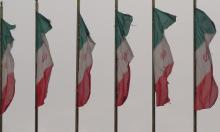Russia-Turkey talks to concentrate on energy, bilateral trade
The two countries are expected to discuss ways to improve trade ties, including a Turkish proposal to build an overland pipeline that could carry Russian and Central Asian oil from a Black Sea port to Turkey's Mediterranean oil terminal of Ceyhan.
Turkey argues that the narrow Bosporus Strait, which runs through heavily populated Istanbul, is overcrowded with tankers, many carrying crude from the Russian Black Sea port of Novorossiisk, posing a major environmental threat.
Russia has been reluctant to back Turkey's oil pipeline proposal. Russian state-run gas giant OAO Gazprom signed a competing deal in May with a Greek construction firm to build a pipeline from Bulgaria's Black Sea port of Burgaz to the Greek Aegean port of Alexandropolis.
Either pipeline would avoid the Bosporus, but Turkey is seeking to carve a strategic niche for itself as a regional energy hub. It plans to export gas from Russia, Iran and Central Asia to Europe.
A newly completed U.S.-backed oil pipeline from Baku, Azerbaijan, to Ceyhan, via the Georgian capital, Tbilisi, will be officially inaugurated next month.
In 2005, trade turnover between the two countries reached US$12.6 billion ( Ђ 10 billion), which was 45 percent higher than the previous year, a source in the presidential administration said on customary condition of anonymity.
Russia is the second-biggest exporter of goods to Turkey, after Germany, while Turkey is the eighth-largest source for imports to Russia, according to the AP.
Subscribe to Pravda.Ru Telegram channel, Facebook, RSS!





